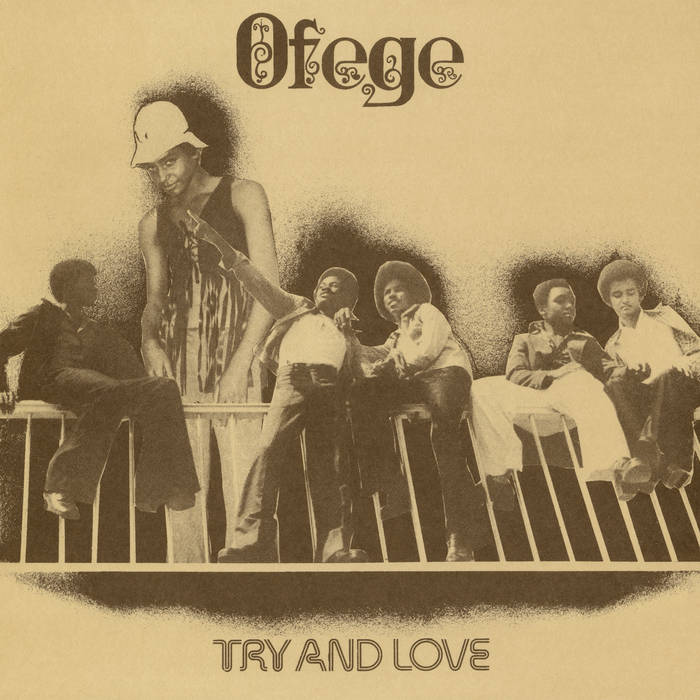According to Soundway Records boss Miles Cleret’s liner notes to the 2008 compilation Nigeria Rock Special: Psychedelic Afro-Rock & Fuzz Funk in 1970s Nigeria, the Afrobeat movement wasn’t that nation’s most popular musical style of the decade, as many Anglo-Americans believe. Rather, Westernized, fuzz-laden psych rock captured more local mindshare back then. Ofege, whose players were still in high school, ranked among the most beloved of a scene that included Blo, the Funkees, and Ofo the Black Company. It’s easy to hear why. Ofege’s 1973 debut album, Try and Love, abounds with open-hearted rock that can connect with anyone who’s fallen in love before reaching voting age.
Given the accomplished musicianship and gravity of emotions on display here, it’s hard to believe that Ofege’s members were all between 15 and 17 during the recording of Try and Love. These Lagos students come off as rock-infatuated youths expressing feelings of love for the first time, and it’s absolutely charming. More strikingly, the songs sound as if they could’ve been the handiwork of London art-school proggers, Arthur Lee’s post-Forever Changes Love, or the filthy funkateers rescued for posterity by 2003’s Chains and Black Exhaust comp. On Try and Love, no debts to Fela Kuti are detected.
Opener “Nobody Fails” instantly subverts whatever expectations you may have of Nigerian rock with its quasi waltz-time rhythm, chikka-wakka guitar punctuation, and Melvin “Noks” Ukachi’s vocals, which sound as if he hasn’t totally transitioned out of puberty. The lysergic, alpha-male guitar solo that divides the song is by top session musician Berkley Jones, who also played with Blo. The joyous music of “Nobody Fails” contrasts with Ukachi’s laments about potential lovers inevitably leaving one disappointed. The occasional double- and triple-negative constructions sow confusion (e.g., “You can’t never see nobody fail”), but, regardless, such bleak jadedness is shocking for a teen songwriter.
Ofege’s compositional complexity flowers on “Gbe Mi Lo,” as drummer M-Ike Meme flaunts the semi-galloping gait and intricate stickwork of much modern Tuareg desert rock. Meanwhile, in a plot twist, Jones’ majestic guitar solo recalls the florid runs of Lino Ajello of Italian prog rockers Il Balletto di Bronzo. Similarly, “You Say No” is dramatic prog that’s wise and sophisticated beyond its years. By contrast, “Lead Me On” bustles with youthful optimism. Ukachi pleads with his crush to take his hand and lead him on to idyllic planes of love as Meme’s beats emulate the skitter and tumble of a heart in the throes of a new passion.
Try and Love peaks on “It’s Not Easy,” the lone track with lyrics written by bassist Paul Alade. It’s one of those songs that never fails to stop time and launch you into a rapturous reverie. The mood is as languorous as Traffic’s “Dear Mr. Fantasy” or Bob Dylan’s “Lay Lady Lay,” but it replaces the latter song’s grown-up creepiness with an adolescent’s doe-eyed earnestness and tenderness. The yearning beauty of the melody and the swaying, sighing backing vocals could move Jagger and Richards’ wild horses to tears. No wonder the song’s been licensed in four TV shows this decade. Perhaps the pinnacle of West African love balladry, “It’s Not Easy” is the anomalous, gooey center of an album that proved these young Nigerians could compete on rock’s world stage with the best that the West had to offer.
All products featured on Pitchfork are independently selected by our editors. However, when you buy something through our retail links, we may earn an affiliate commission.

